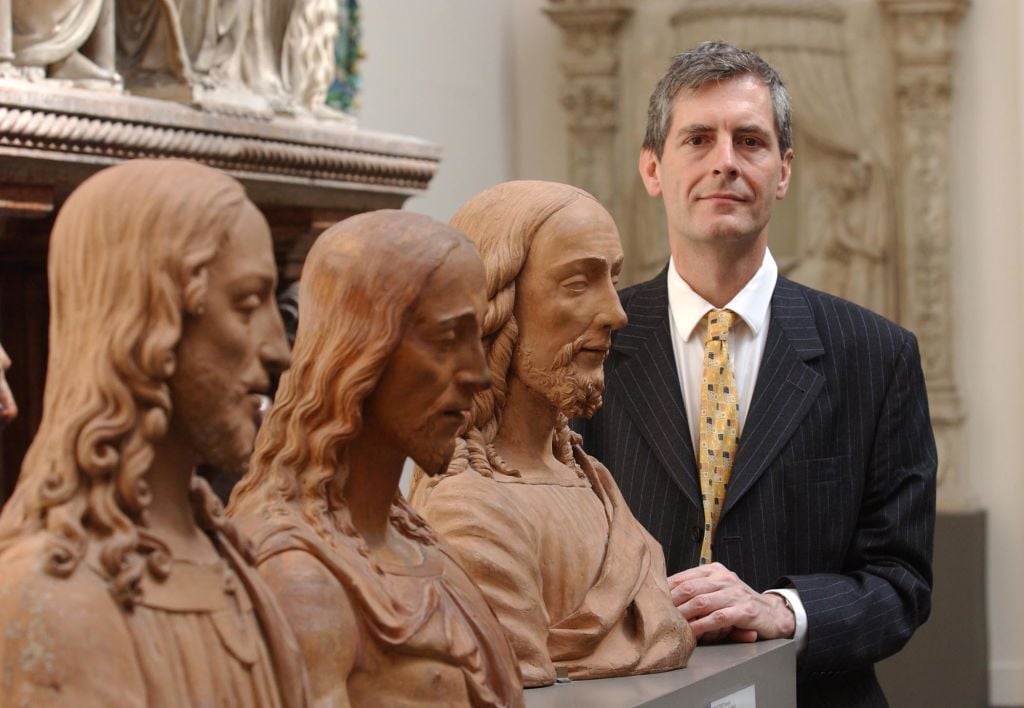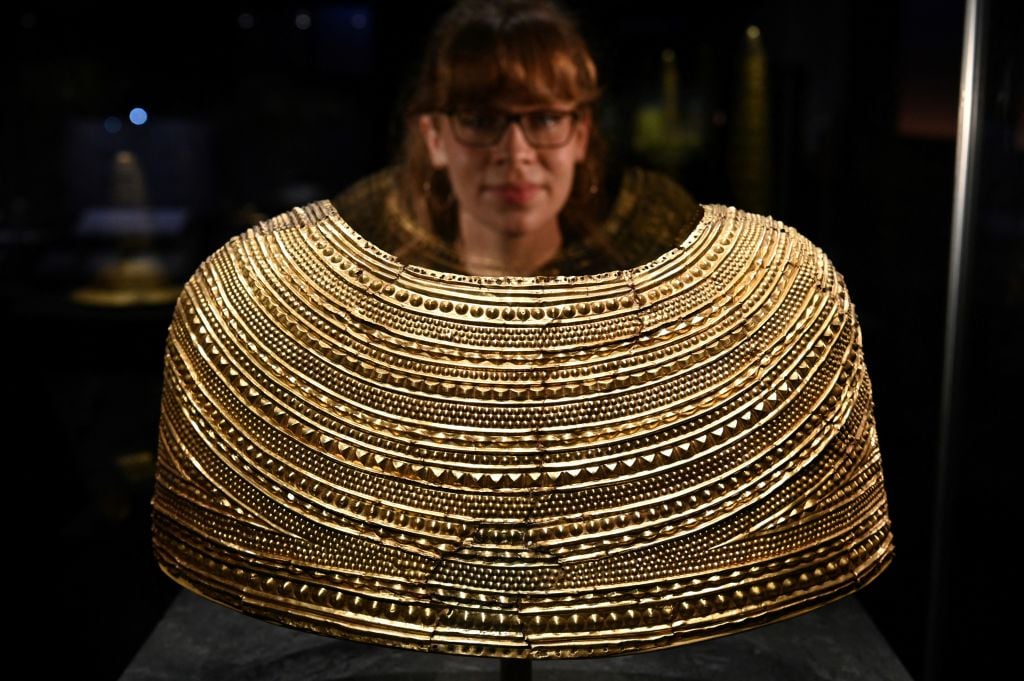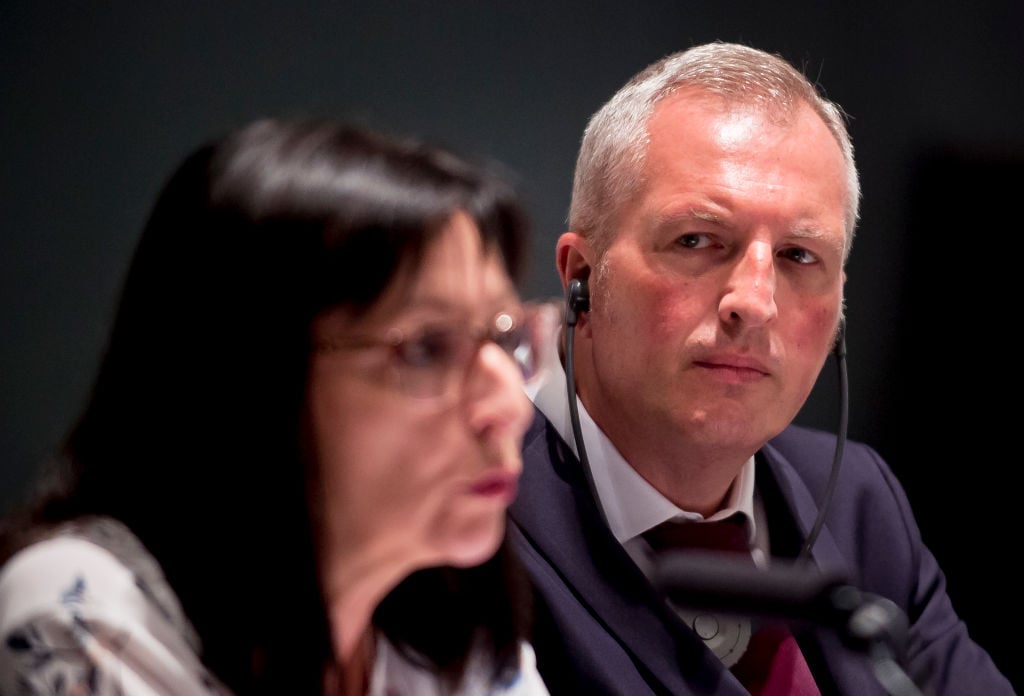Museums & Institutions
The Embattled British Museum Has Named an Interim Director as More Countries Ramp Up Calls for Repatriation of National Treasures
Wales is the latest country to call on the British Museum to return objects.

Wales is the latest country to call on the British Museum to return objects.

Jo Lawson-Tancred

Sir Mark Jones has been named interim director of the British Museum, temporarily stepping in to replace Hartwig Fischer. The former director resigned on August 25, shortly after a major theft at the museum came to light, spiralling the historic museum into the storm of an international scandal.
The museum expert’s appointment is still subject to the approval the U.K.’s prime minister Rishi Sunak.
“Mark is one of the most experienced and respected museum leaders in the world, and he will offer the leadership and grip the museum needs right now,” said George Osborne, chair of museum trustees, in a statement to the press.
Jones has extensive experience as a museum director, having led the Victoria and Albert Museum in London from 2001 to 2011. He was previously the inaugural director of National Museums Scotland, and worked at the British Museum as assistant keeper of Coins and Medals from 1974 to 1990.
Since the news of the thefts surfaced in August, several nations, including Greece and China, have called for the repatriation of their cultural heritage. Wales has also come forward, with politicians demanding the return of items like the Mold Gold Cape and the Moel Hebog Shield, according to The Art Newspaper.

A museum employee looks at a Mold Gold cape dated between 1900-1600 BC and found in Flintshire, Wales. Photo by Daniel Leal/AFP via Getty Images
If Jones is approved by the prime minister, while trying to repair the museum’s damaged reputation while the investigation into the theft is ongoing, he will also have to address these restitution requests. According to The Times, in 2002, Jones came out in support for the British Museum sharing the long-contested Parthenon marbles with Greece. “It is not necessarily a case of transferred ownership or of giving the marbles back for good,” he said at the time, “but when people believe things are really important, as the Greeks and the British Museum do in this case, that is actually a good thing. Apathy is our great enemy.”
Greece has repeatedly rejected offers of a long-term loan deal since its government does not recognize the museum’s ownership of the sculptures nor its right to loan them out.
Over the summer, a scandal erupted at the preeminent institution when news of a theft of gems, gold, and other precious objects came to light. The British Museum announced that it had fired an employee in the connection to the theft on August 16. Just a day later, The Telegraph revealed that the suspected thief was senior curator for Greek and Roman art Peter Higgs, who had worked at the museum for 30 years. Higgs’s family spoke on behalf of the curator saying he denied any wrongdoing.

Curator Peter John Higgs [R] during a press conference for “Agon! La Competicion En La Antigua Grecia” at Caixaforum Madrid on July 13, 2017 in Madrid, Spain. Photo: Samuel de Roman/Getty Images.
Fischer announced his resignation in the days that followed. “I sincerely believe it will come through this moment and emerge stronger, but sadly I have come to the conclusion that my presence is proving a distraction,” Fischer said in his resignation statement. “That is the last thing I would want.”
His deputy director Jonathan Williams also voluntarily stepped back from his role until the independent review into the thefts is completed. He has been temporarily replaced by the archaeologist Dr Carl Heron, who has worked at the British Museum since 2016.
Liz Saville Roberts, of the left-wing Welsh nationalist political party Plaid Cymru, pointed out that some of Wales’ culturally valuable objects were not even on display and could be rehoused at the National Museum Wales in Cardiff. “It is high time we faced that the British Museum does not hold the right to these treasures,” she told the Daily Mail.
“The Mold Gold cape has been on loan to both Wrexham Museum and National Museum Wales in Cardiff in the past ten years, and it has been loaned internationally, as recently as 2021 to Halle in Germany,” a spokesperson for the museum told Sky News.
The renowned Egyptologist Zahi Hawass has also renewed a call initially made last year for the British Museum to return the Rosetta Stone and other historic artefacts to Egypt. He has asked for help from UNESCO in calling an international conference to discuss next steps, according to ahramonline.
More Trending Stories:
Here’s How Much Money U.S. Museum Directors Make—But a Growing Backlash Could Soon Change That
New Court Filings Show the Magnitude of Claims Being Made Against Disgraced Art Advisor Lisa Schiff